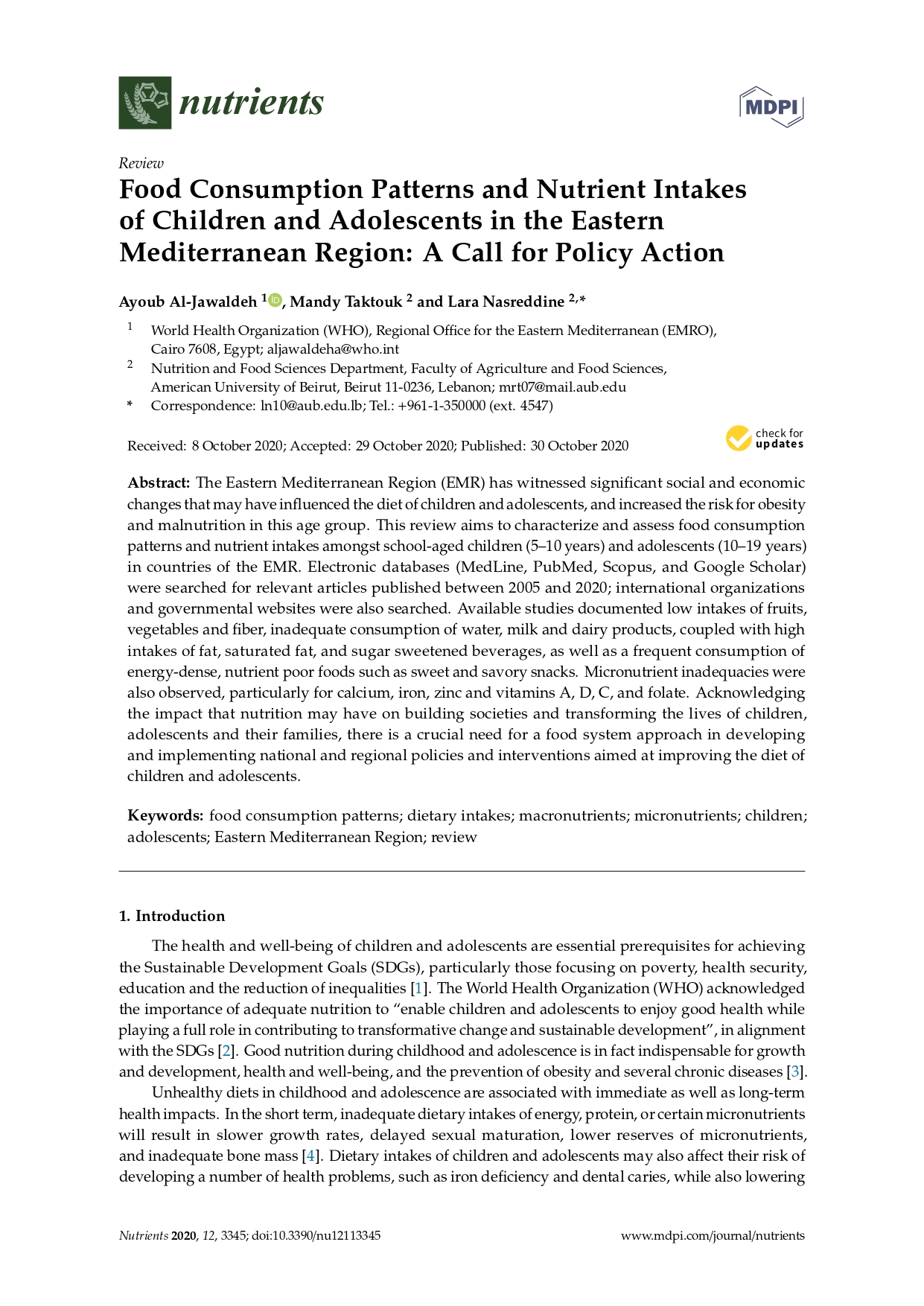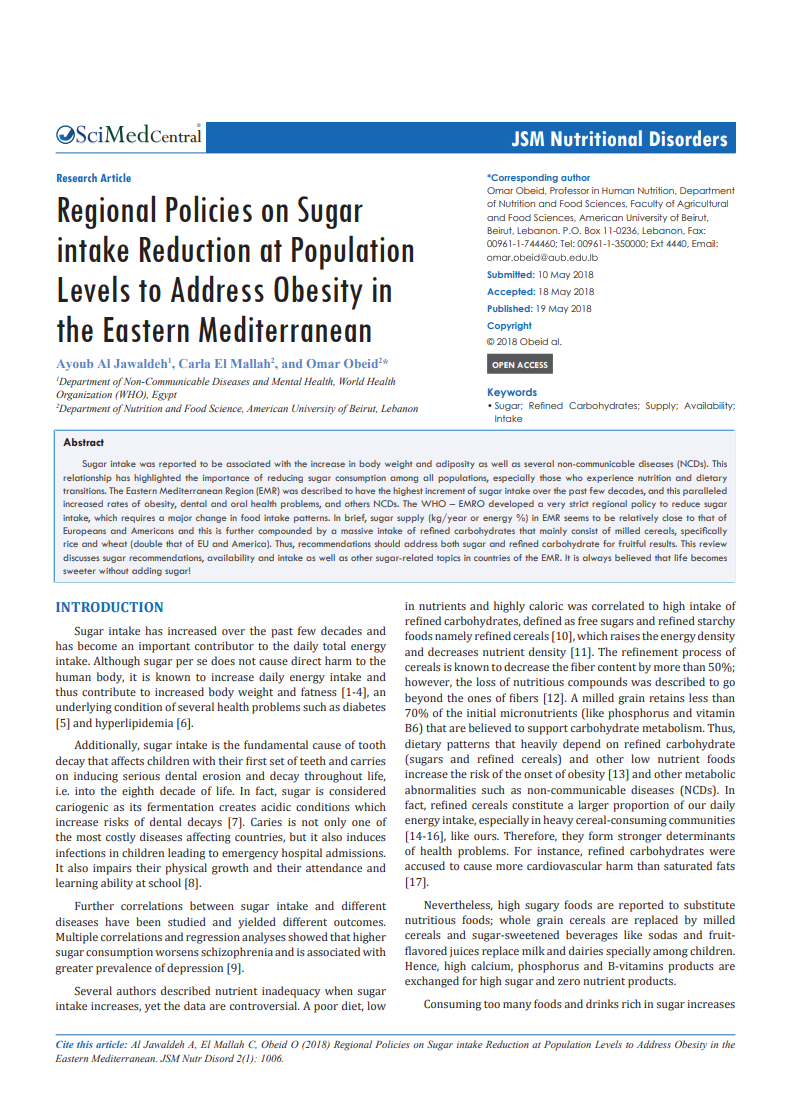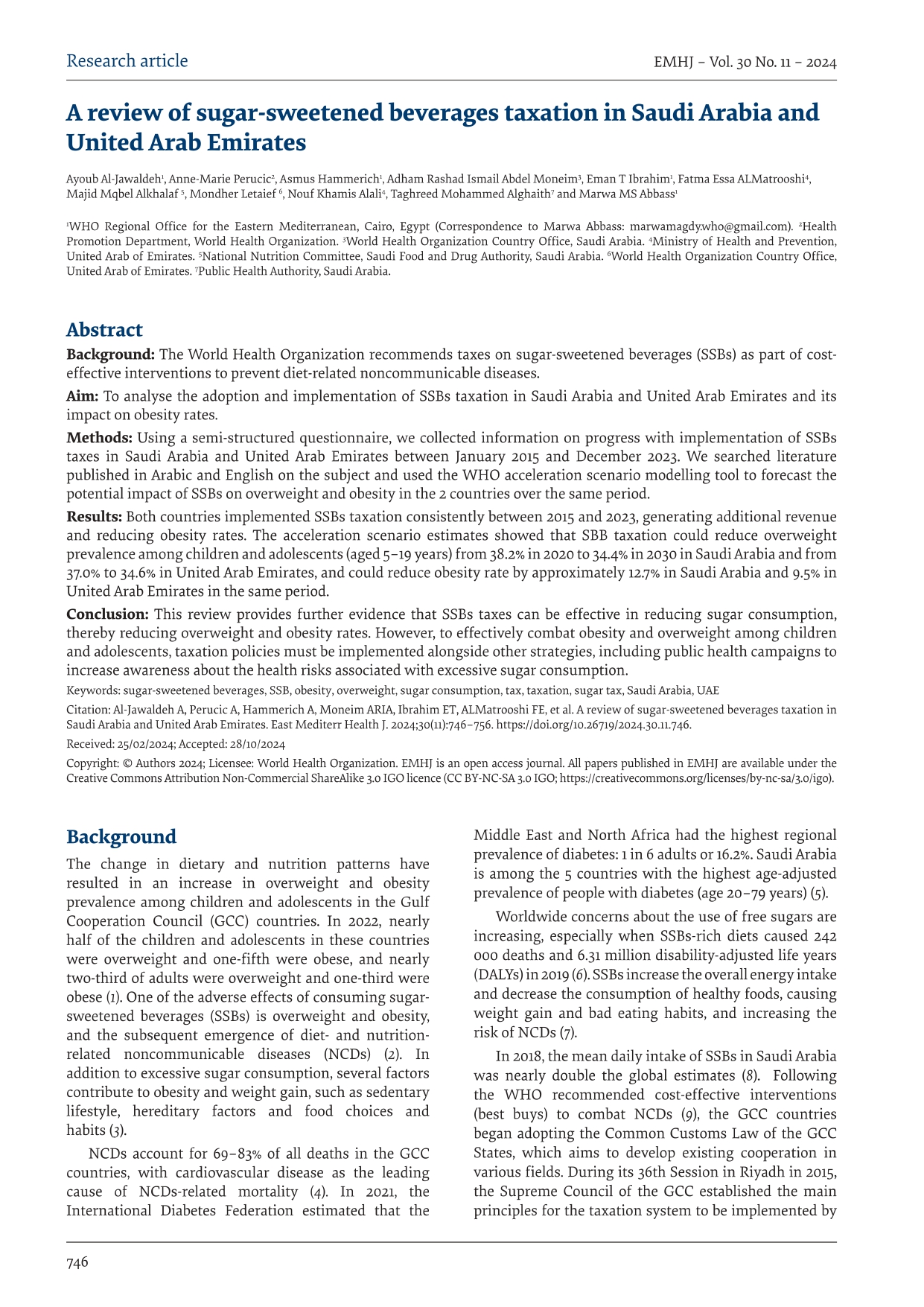
A review of sugar-sweetened beverages taxation in Saudi Arabia and United Arab Emirates
Publication date: 2024
Significant attention is being given to the role of sugar-sweetened beverages (SSBs) in the increasing rates of obesity and diet-related noncommunicable diseases in the Eastern Mediterranean Region (EMR). The aim of this paprer is to document the different approaches being used by EMR countries in implementing the sugar-sweetened beverages taxation. To conclude, only half of the EMR countries are currently implementing SSBs taxation, and the imposed tax is less than 20% in half of these countries. All EMR countries should start implementing SSBs taxation as part of their national disease control policy frameworks to help reverse the increasing trend of obesity and other diet-related noncommunicable diseases in the region.
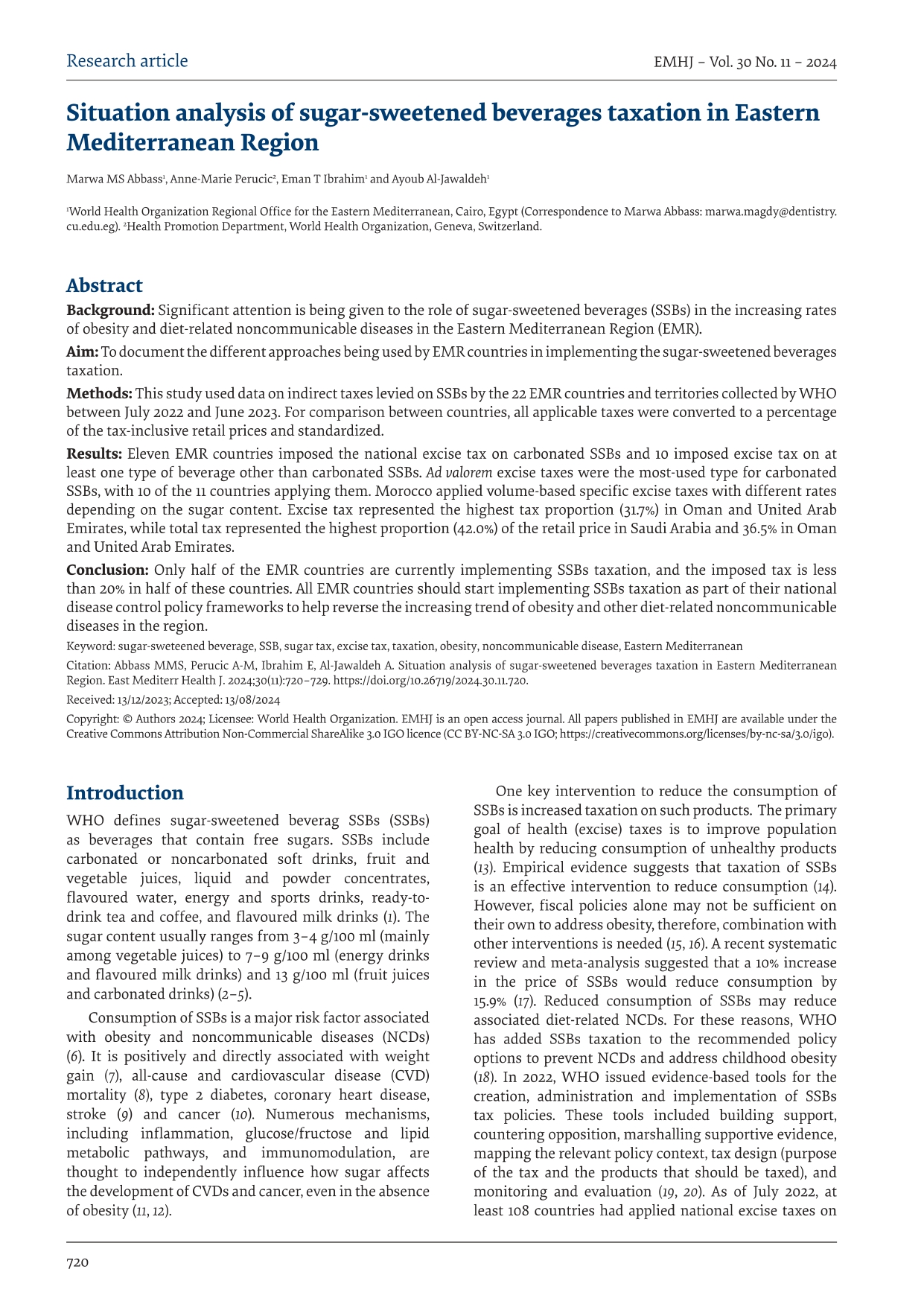
Situation analysis of sugar sweetened beverages taxation in Eastern Mediterranean Region
Publication date: 2024
Significant attention is being given to the role of sugar-sweetened beverages (SSBs) in the increasing rates of obesity and diet-related noncommunicable diseases in the Eastern Mediterranean Region (EMR). The aim of this paprer is to document the different approaches being used by EMR countries in implementing the sugar-sweetened beverages taxation. To conclude, only half of the EMR countries are currently implementing SSBs taxation, and the imposed tax is less than 20% in half of these countries. All EMR countries should start implementing SSBs taxation as part of their national disease control policy frameworks to help reverse the increasing trend of obesity and other diet-related noncommunicable diseases in the region.
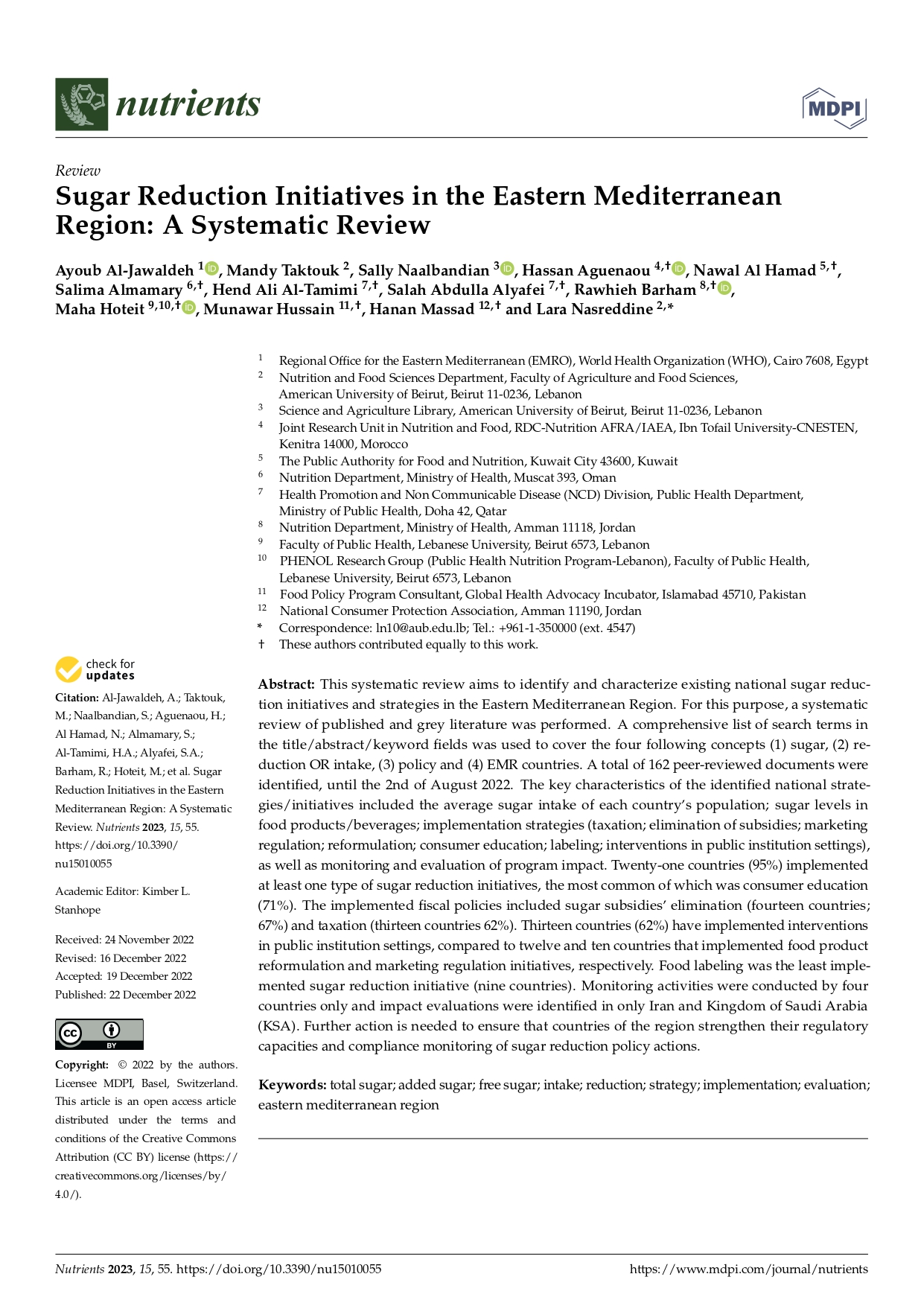
Sugar reduction initiatives in the Eastern Mediterranean Region: a systematic review
Publication date: 2022
This review analyzes sugar reduction efforts across the Eastern Mediterranean Region, identifying 162 relevant studies. It found that most countries have implemented strategies like consumer education, sugar subsidies elimination, and taxation. However, there is limited data on the effectiveness of these measures, with only a few countries conducting impact assessments. Despite these initiatives, sugar intake remains high, particularly among children and adolescents. The review emphasizes the need for stronger monitoring and regulatory frameworks to ensure the success of sugar reduction policies and meet regional health targets.
The threshold of sweet taste recognition among a sample of Moroccan population
Publication date: 2022
Sugar consumption in Morocco is high, which triggers serious health conditions. This study aims to determine the threshold of sweet taste recognition and evaluate differences by sex, age and body mass index among a sample of the Moroccan population. The findings indicate that the Moroccan population, compared to other countries, recognizes the sweet taste at a high threshold of 27 mmol/L (by 51.6%).
Nutritional value of the Middle Eastern diet: analysis of total sugar, salt and iron in Lebanese traditional dishes
Publication date: 2020
The expanding burden of diet-related noncommunicable diseases in the Eastern Mediterranean requires urgent public health vigilance and actions. This study aimed at establishing a database analysis of total sugar, salt and iron content in Lebanese foods, focusing on traditional dishes. This study emphasizes the need for multi-cultural education and awareness on food sources of salt and iron, and the health effects regarding high intake of salt and low intake of iron.
Regional policies on sugar intake reduction at population levels to address obesity in the Eastern Mediterranean
Publication date: 2018
Sugar intake has been reported to be associated with the increase in body weight and adiposity as well as several noncommunicable diseases. The aim of this review is to provide an updated summary on sugar consumption in the Eastern Mediterranean Region and to suggest strategies that help countries decrease their intakes, abiding by the new recommendations. This report concludes that most updated dietary guidelines and nutrition recommendations tend to only focus on white sugar that is added to food and drinks. The review suggests cutting down on all refined carbohydrates.
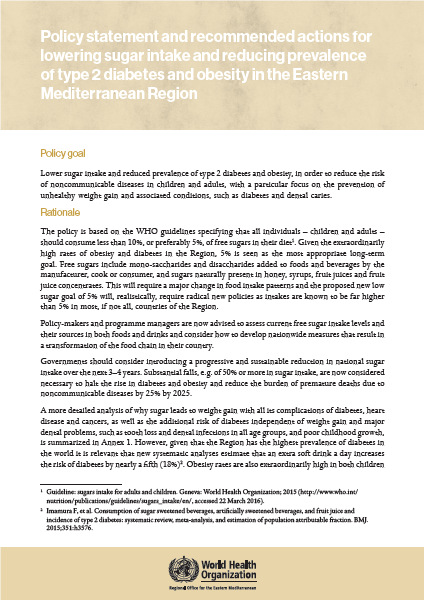
Policy statement and recommended actions for lowering sugar intake and reducing prevalence of type 2 diabetes and obesity in the Eastern Mediterranean Region
Publication date: 2016
This policy statement and proposed action plan is part of the WHO Regional Office for the Eastern Mediterranean’s effort to reach the global targets of halting the rise in diabetes and obesity and reduce the burden of premature deaths due to noncommunicable diseases by 25% by 2025. Through a four-phased approach, this policy statement provides the steps that countries should follow to reduce sugar intake, which consequently leads to maintaining a normal body weight, avoiding type 2 diabetes and also preventing dental caries in children and adults.






